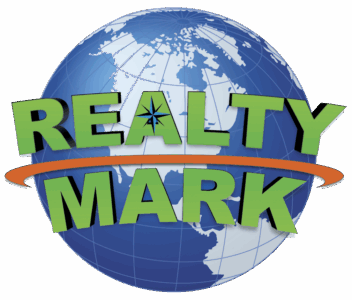Consumer Frequently Asked Questions (FAQs)| Cape May County Association of Realtors (cmcar.org)
When is the best time to sell my home?
The best time to sell your home can depend on various factors, including your local real estate market conditions, economic trends, and personal circumstances. It’s often advisable to consult with a local REALTOR® who has expertise in your specific market. They can provide valuable insights and help you determine the optimal time to sell based on your unique situation. Additionally, keep in mind that while certain times of the year may be considered more favorable, the right time to sell ultimately depends on your individual circumstances and goals.
How is the real estate market right now?
Real estate markets can vary widely by location and are influenced by numerous factors, including economic conditions, interest rates, and local demand and supply. To get the most accurate and up-to-date information on the current real estate market, we recommend checking with a REALTOR®, consulting market reports, or utilizing online resources that provide real-time housing market data. News outlets, real estate websites, and government housing agencies often provide updates on market trends and conditions.
What steps should I take to prepare my home for sale?
Preparing your home for sale is an important process that can help attract potential buyers and maximize its market value. Here are some steps you can take to get your home ready for sale:
1. Clean and Declutter:
Clean your home thoroughly, including carpets, windows, and appliances.
Declutter by removing personal items, excess furniture, and anything that makes rooms feel crowded.
2. Depersonalize:
Remove personal items such as family photos and unique decor to help potential buyers envision themselves in the space.
3. Neutralize Colors:
Consider painting rooms in neutral colors to appeal to a broader range of buyers.
4. Make Necessary Repairs:
Fix any obvious issues, such as leaky faucets, broken tiles, or damaged walls.
Consider getting a pre-inspection to identify and address potential problems in advance.
5. Enhance Curb Appeal:
First impressions matter. Ensure the exterior of your home is well-maintained, with a neat lawn, trimmed bushes, and a clean entrance.
6. Update Lighting:
Adequate lighting can make a space feel more inviting. Replace outdated fixtures and consider adding brighter bulbs.
7. Stage Your Home:
Arrange furniture to showcase the potential of each room. Consider hiring a professional stager for optimal results.
8. Improve Energy Efficiency:
Install energy-efficient features, such as LED bulbs, programmable thermostats, or energy-efficient appliances.
9. Highlight Key Features:
Emphasize the unique features of your home, such as a fireplace, architectural details, or a great view.
10. Create a Welcoming Atmosphere:
Consider adding pleasant scents or fresh flowers to create a welcoming ambiance during showings.
11. Provide Necessary Documents:
Gather important documents, such as the property deed, tax information, and any relevant warranties, to streamline the selling process.
12. Be Flexible for Showings:
Be prepared to accommodate potential buyers’ schedules for showings. The more flexible you are, the more opportunities you create for your home to be seen.
13. Get Professional Help:
Consult with a REALTOR® to get professional advice on pricing, marketing, and negotiating.
Remember that every home is unique, so these steps may need to be adjusted based on your specific circumstances. It’s essential to present your home in the best possible light to make it attractive to potential buyers.
How much is my home worth?
Determining the current value of your home requires a detailed analysis that takes into account various factors, such as the local real estate market, recent sales of comparable properties, the condition of your home, and any improvements you may have made.
To get an accurate estimate of your home’s value, we suggest consulting with a local REALTOR® who can provide a comparative market analysis (CMA).
Additionally, you can check recent sales of similar properties in your neighborhood to get an idea of the current market trends. Keep in mind that the real estate market is dynamic and can change over time, so the value of your home may fluctuate.
How long does the listing agreement last?
The duration of a listing agreement can vary and is typically negotiable between the seller and the REALTOR® or broker. A listing agreement is a contract between a property owner and a REALTOR® or broker, outlining the terms and conditions under which the agent will market and sell the property on behalf of the owner.
The length of the agreement depends on the agreement reached between the parties and can be influenced by factors such as the local real estate market conditions, the type of property, and the strategies involved in marketing and selling the property.
It’s important for both parties to carefully review and understand the terms of the listing agreement before signing, as this contract governs the relationship between the property owner and the REALTOR® during the specified period. If the property doesn’t sell within the agreed-upon timeframe, there may be provisions for extending or renegotiating the listing agreement.
If you have any other question other than these Consumer Frequently Asked Questions (FAQs) Click here to contact me.
Consumer Frequently Asked Questions (FAQs)
BOOK A FREE CONSULTATION HERE:




